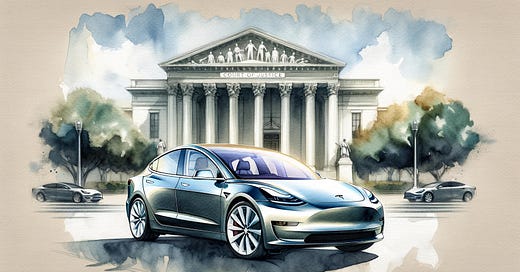“In January 2024, the court issued a post-trial opinion finding that the award was subject to review under the entire fairness standard, the defendants bore the burden of proving entire fairness, they failed to meet their burden, and the plaintiff is entitled to rescission. The plaintiff’s attorneys then petitioned for fees and expenses, which is typical in a derivative suit when the plaintiff prevails.”
“The defendants responded by putting the rescinded compensation plan—the exact same plan that the post-trial opinion deemed a breach of the duty of loyalty—to a stockholder vote for the stated purpose of “ratifying” it. The defendants then moved to “revise” the post-trial opinion based on the stockholder vote, asking the court to flip its decision and enter judgment in their favor.”
Last month, Delaware Chancellor McCormick denied the motion to revise her post-trial opinion in Tornetta v. Musk and awarded $345 million in attorneys’ fees to the plaintiffs. In doing so, she reaffirmed her…
Keep reading with a 7-day free trial
Subscribe to Boardroom Governance Newsletter to keep reading this post and get 7 days of free access to the full post archives.




